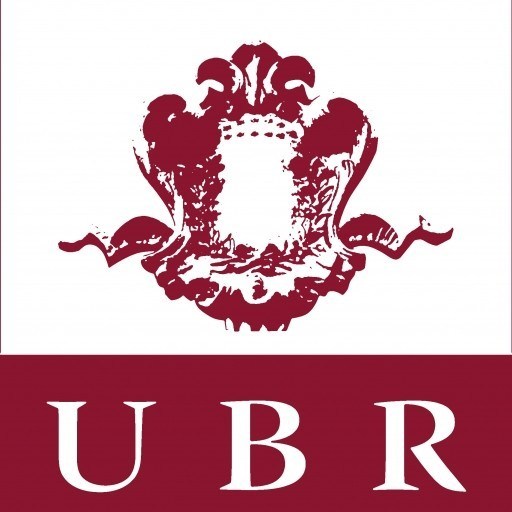Photos of university / #unibuc
The Ecology and Environment Protection programme at the University of Bucharest offers a comprehensive education designed to equip students with the knowledge and practical skills necessary to address the complex challenges facing our planet's ecosystems today. This interdisciplinary programme combines principles of biological sciences, environmental science, and sustainability studies to prepare graduates for careers in environmental management, conservation, and policy-making. Throughout the course of study, students explore a wide range of topics including ecology, biodiversity, environmental legislation, pollution control, climate change, and sustainable development practices.
The programme emphasizes both theoretical understanding and hands-on experience. Students engage in fieldwork activities, laboratory analyses, and projects that simulate real-world environmental issues. They learn to assess environmental impacts, develop mitigation strategies, and promote sustainable practices across various sectors. The curriculum also includes courses on geospatial technologies, environmental monitoring, and ecological modeling, providing students with modern tools to analyze and interpret environmental data.
University of Bucharest's dedicated faculty members are experts in their fields, guiding students through research projects and internships with local environmental agencies, research institutes, and NGOs. The programme aims to foster critical thinking, problem-solving skills, and a commitment to environmental stewardship. Graduates of the Ecology and Environment Protection programme are well-prepared to undertake roles in environmental consultancy, conservation organizations, governmental agencies, and international environmental bodies. They are also equipped to pursue further research and specialization in environmental sciences. With a strong focus on sustainability and the preservation of natural resources, this programme aspires to contribute to creating a greener, healthier future for society.
Detailed Course Facts
Tuition fee- EUR 270 Month (EEA)
- EUR 270 Month (Non-EEA)
The standard unit of study is the semester. The normal load of a semester is conventionally 30 credits. The convention of 30 credits/semester was chosen to adjust to the European Credit Transfer System (ECTS). The credits assess the normal volume of a student's work.
Duration full-time 36 months Languages Take an IELTS test- Romanian
Course Content
Number of Laboratories and Research Centres: 79 laboratories, 25 seminar rooms, 9 research centres, and 6 lecture halls.
Employment Opportunities:- - Undergraduate and graduate education, as teacher and/or researcher;
- - Biologist in research, clinic, ecologic and quality control of the products within biosynthesis industry laboratories;
- - Inspector within the Preventive Medicine and Sanitary Police Inspectorate.
- - Biologist or Microbiologist in research institutes;
- - Biologist in phytosanitary quarantine laboratories or public health departments;
- - Biologist in the pharmaceutical industry;
- - Inspector for certain agencies for environmental protection;
- - Employee at museums of natural sciences, botanical gardens, zoos;
- - Specialist within the Environmental Police;
- - Pharmaceutical industries;
- - Research centres.
Requirements
Following Romanias adhering to the European Union and in accordance with Law 316 from July 12, 2006, the citizens from the European Union as well as the citizens from the Swiss Confederation and the European Economic Region may study at Romanian Higher Education Institutions in the same conditions as Romanian students do, that is :
- They have to pass an entrance examination for all study levels ( Bachelor, Master, PhD), at the same dates and the same subjects as Romanian students.
- The study fees are the same as for Romanian students, to be paid in Romanian currency (Ron). The fees may be updated every year.
- The admission sessions usually are in July for Bachelor studies and in September for Master and PhD studies.
- The exact examination data are available at every faculty of the university (they might differ slightly from one faculty to another).
In order to register for the entrance examination at any of the faculties of the University of Bucharest, the file must contain the following documents:
- Certificate of equivalence of study documents
- High school diploma + school records, in original and endorsed copies
- Birth certificate, endorsed copy
- Health certificate
- Three photos size ¾
- Passport or any other ID, in copy
- Proof of payment for the examination taxes
Work Experience
No work experience is required.
Related Scholarships*
- Academic Excellence Scholarship
"The Academic Excellence Scholarship can provide up to a 50 % reduction in tuition per semester. These scholarships will be renewed if the student maintains superior academic performance during each semester of their 3-year Bachelor programme. The scholarship will be directly applied to the student’s tuition fees."
- Alumni Study Travel Fund
Scholarships for students who are already attending the University of Reading.
- Amsterdam Merit Scholarships
The University of Amsterdam aims to attract the world’s brightest students to its international classrooms. Outstanding students from outside the European Economic Area can apply for an Amsterdam Merit Scholarship.
* The scholarships shown on this page are suggestions first and foremost. They could be offered by other organisations than University of Bucharest.
The Ecology and Environment Protection program at the University of Bucharest offers a comprehensive education in understanding the complex relationships between natural ecosystems and human activities. This Bachelor's degree program is designed to equip students with theoretical knowledge and practical skills necessary for addressing environmental challenges such as pollution, biodiversity loss, and climate change. Throughout the course, students engage with disciplines like ecology, environmental science, conservation biology, and sustainable development, gaining insights into the functioning of natural systems and the impact of anthropogenic factors.
The curriculum includes modules on terrestrial and aquatic ecosystems, environmental legislation, environmental management, and pollution control technologies. Students learn about the principles of environmental monitoring, data analysis, and environmental impact assessment. Emphasis is also placed on developing skills in environmental policy formulation and public awareness, preparing graduates for roles in government agencies, research institutions, environmental consulting, and NGOs.
The program often combines theoretical lectures with laboratory work, field trips, and internships, enabling students to gain practical experience. Collaboration with environmental organizations and participation in research projects are common components, fostering a multidisciplinary approach to environmental issues. Graduates are prepared to work on projects related to ecosystem preservation, pollution mitigation, and sustainable resource management.
The faculty's expertise and research activities provide students with up-to-date knowledge of current environmental problems and innovative solutions. The program also encourages critical thinking and problem-solving skills, essential for addressing complex ecological challenges. By the end of the program, students are expected to have a thorough understanding of environmental issues and the ability to apply scientific principles to promote ecological sustainability.
Overall, the Ecology and Environment Protection program at the University of Bucharest aims to develop environmentally conscious professionals capable of contributing to ecological conservation and sustainable development at local, national, and international levels. The program’s graduates are well-positioned to assume leadership roles in addressing the global environmental crisis, advocating for policies that promote sustainability, and advancing scientific research dedicated to protecting the planet's natural resources.







